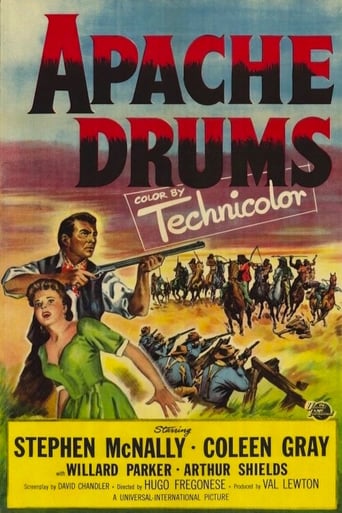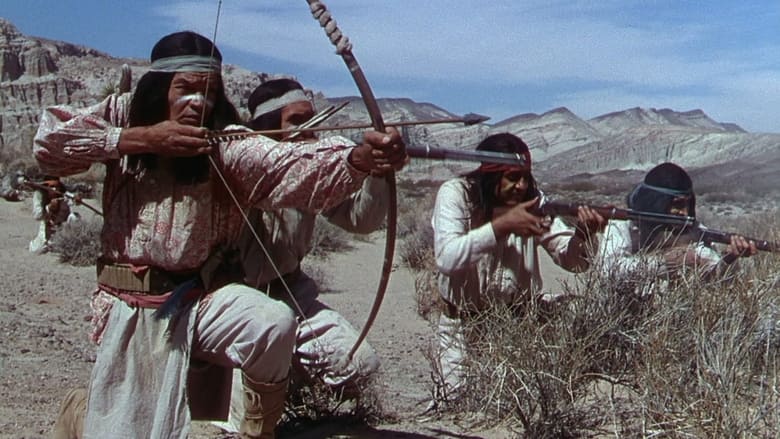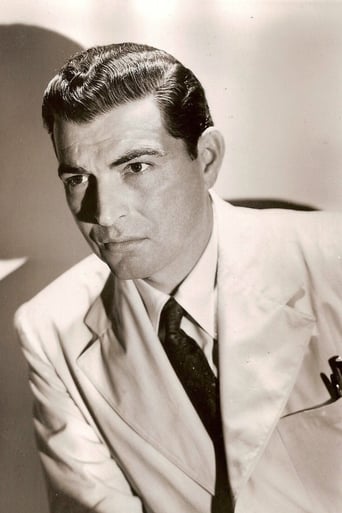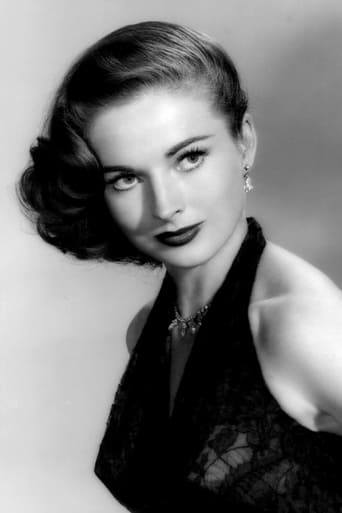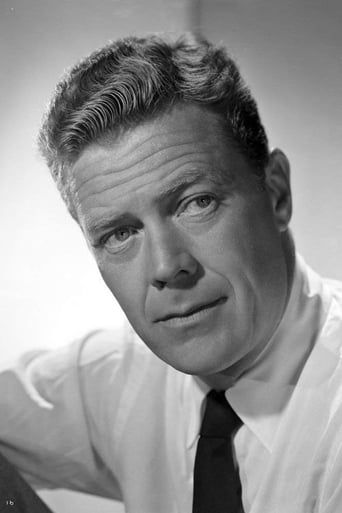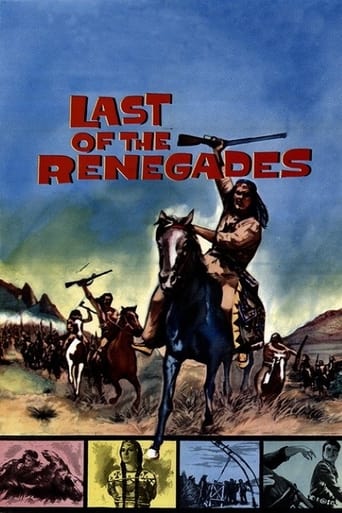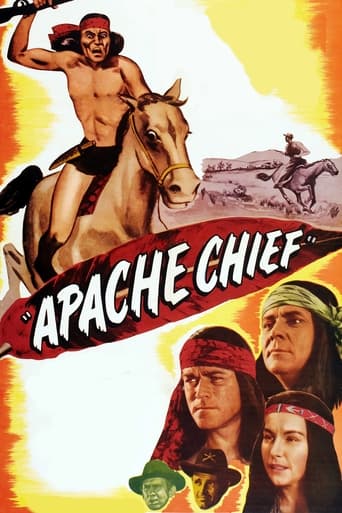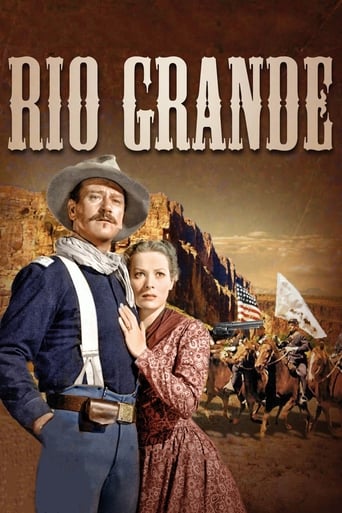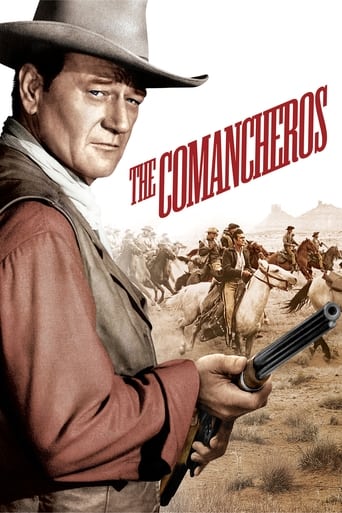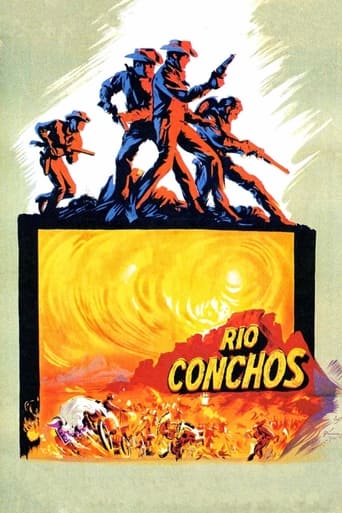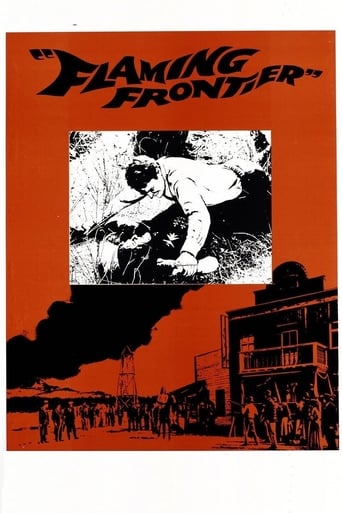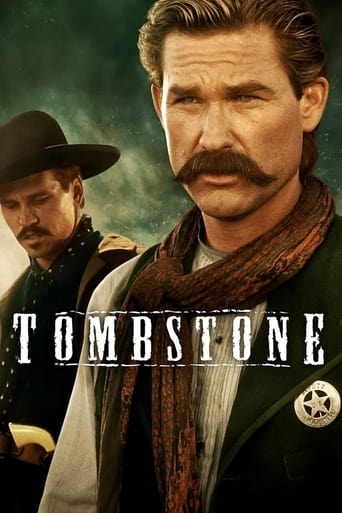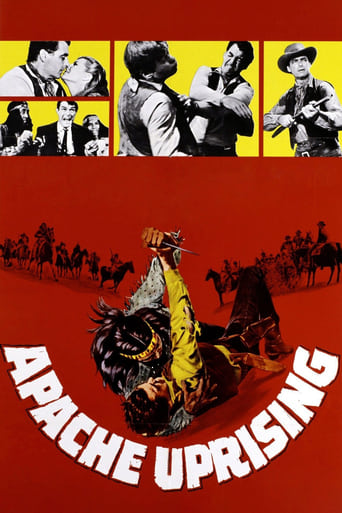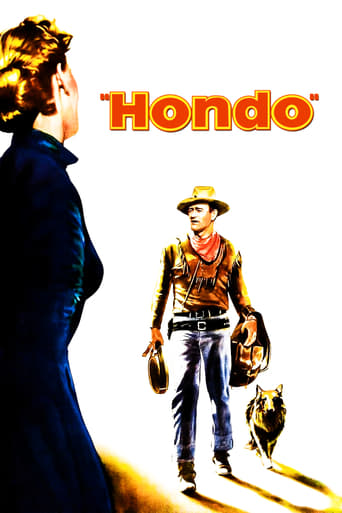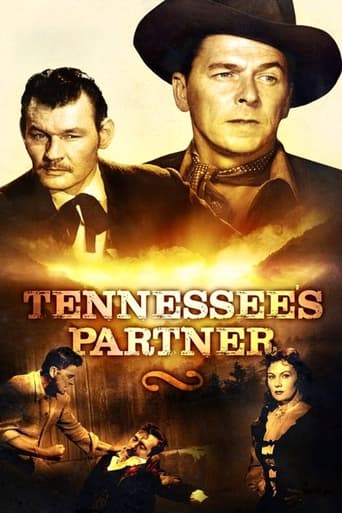Apache Drums (1951)
A gambler is thrown out of a western town, but returns when the town is suddenly threatened by a band of marauding Apaches.
Watch Trailer
Cast


Similar titles
Reviews
Fantastic!
The performances transcend the film's tropes, grounding it in characters that feel more complete than this subgenre often produces.
In truth, there is barely enough story here to make a film.
Very good movie overall, highly recommended. Most of the negative reviews don't have any merit and are all pollitically based. Give this movie a chance at least, and it might give you a different perspective.
Val Lewton and Hugo Fregonese, that's quite a pair and this film makes justice to it. Fregonese directed some solid westerns like "The Raid", Blowing Wild" and "Saddle Tramp". It is hard to find a western that did not age and when looking for some aspect of it that will be cheesy, naive, improbable, deja vu,etc you will not find it. This is just the case. Stephen McNally is Sam Leeds, a gambler who loses his credibility to the town people, so when he tries to warn them about an incoming attack by the Apaches, they don't believe him. Coleen Gray is Sally, the woman he loves, but does not trust him and Willard Parker is Madden, his rival the local mayor. From the moment Leeds realizes there is going to be an attack, the film has a tense ambiance which keeps getting worse as people start dying in the church. Good cinematography by Charles P. Boyle who also did some remarkable westerns like "The Cimarron Kid" and "Horizons West".
This really is a poor film.Whilst the basic story is a typical good old yarn, the performances (with the exception of James Griffith as the Army commander) are very one-dimensional and the characters are hackneyed and do not develop.The production values are also very low and make-up on some of the "Apaches" in the title are more akin to a horror movie than a western, consequently one's mind starts to wander which is not helped by such a pedestrian-paced storyline.And as for direction, there is a literally-laugh-out-loud scene when they sing where you can not only tell that everyone singing is from the Welsh valleys that even the main character does not lip-synch in time. Although there is a slight raising of tension towards the latter parts of the film it is only slight and not really enough to make you have any doubt about the ending.I love westerns and am trying to see as many as I can at the moment but this is one of which I wish I had not bothered wasting an hour and a half of my time.
Produced by Val Lewton, Apache Drums is directed by Hugo Fregonese and adapted for the screen by David Chandler from the book "Stand at Spanish Boot" written by Harry Brown. It stars Stephen McNally, Coleen Gray, Willard Parker and Arthur Shields. Music is by Hans J. Salter and cinematography is courtesy of Charles P. Boyle. It was shot on location at Red Rock Canyon State Park, California & it's a Technicolor production. Plot sees McNally as notorious gambler Sam Leeds, who after shooting a man in self defence, is forced to leave the town of Spanish Boot. However, outside of town Sam happens across a terrible scene that forces him back into town to warn the folk of an impending attack by the Mescalero Apaches.The name Val Lewton is synonymous with atmospheric horror, the likes of Cat People, The Body Snatcher, I Walked With a Zombie and Bedlam, have carried the brooding Lewton production stamp. For this, his last film before he sadly passed away, we find him entering the realm of the Western. An odd coupling without doubt, yet as odd as that seems, the oddest thing of all is that the film manages to rise above its budget restrictions and come out just about on top. Working with his director, Fregonese (The Raid), Lewton has produced a final movie that whilst not oozing those eerie atmospherics he's known for, does have enough about it to make it of interest to Lewton completists.Plot and narrative are simple, where on the surface it appears to be a run of the mill Western where the Indians are the bad guys, and the white man stand up to repel them. Yet to dismiss this as solely being formula fodder is unfair, for it has interesting characters, plenty of tension, a grand piece of action and a couple of genuinely haunting images. There's also some smarts in the writing, where racism and ethical principals are scrutinised. While the work involved for the final third of the film, as our group are holed up in a church awaiting Apache incursion, is of a very high standard. Here Fregonese and camera never leaves the room, as the town burns and the Apache chant and bang the drums, we along with the characters are left to our own imaginations, awaiting a savage death in semi darkness. It's a fine claustrophobic set up that's executed admirably. So why isn't the film better known and regarded, then?To get to the good stuff you have to suffer the bad, quite a bit of bad in fact. Running at only 75 minutes the film just about gets away with its drawn out periods of chatter, much of which is mundane; especially where the love triangle is concerned. And the acting ranges from the effective: McNally (Winchester '73/ Criss Cross) & Gray (Red River/Nightmare Alley) to the solid-Shields (The Quiet Man/She Wore a Yellow Ribbon), but away from those three it's pretty wooden fare. Problems also exist with the colour, with low budget comes very basic Technicolor lensing, Red Rock Canyon is reduced to being a dull observer on proceedings and the fiery flames during the finale lack colourful snap. There's also the bizarre use of the song "Men of Harlech". Zulu aficionados (and I'm one of them) know the song well, and the use here in Apache Drums is the same as in Cy Endfield's film, only here it's performed in native Welsh; with the actors dubbed! It's a poor fit all round. History tells us, tho, that the defenders of Rorke's Drift did not sing the song, so it's a distinct possibility that the film Zulu owes a debt of gratitude to Apache Drums. Thank you Lewton and Co.Good and bad every where you look in the film, but the final third swings it well above average in my book. A generous 7/10 rating to my fellow Western movie fans, 6/10 to the casual Sunday afternoon lounge lizard.
Like Lewton's horror films, one doesn't notice the low budget (the lowest ever for a color film at that time, per Lewton) because of the excellent character development and the plot tensions. And like his horror films, it's what you CAN'T see that's so terrifying. The final scene is in an adobe church with high, open windows. Outside one can hear the Apache drums and chants, the light from the burning town flickers on the walls, and one is forced to imagine the scene outside, as do the small band of settlers claustrophobically huddled inside. Indians appear at the windows from time to time like fun-house pop-ups. It's a nightmare situation mined for all its possibilities. Other scenes have a similar effect. A man without a gun comes on a just-massacred traveling party; suddenly, danger seems to exist all around him. Later, the hero is traveling with a party of armed men; suddenly he finds himself alone on foot on a flat plain with nowhere to take cover and a band of Apaches riding toward him at full gallop. And the opening scene: a gunfight occurs off-screen, shattering the peaceful scene of a kitten being served milk (an example of what Lewton called a "bus" scene after the sudden appearance of the bus in THE CAT PEOPLE). Though these situations may not be unique to this film, they are obviously the sort that appealed to Lewton, and are handled very effectively. But the core of the film is the characters: the protagonist, a card sharp who plays the angles (his nickname is "Slick") and is fast with a gun, a wise-ass who isn't all bad; the virtuous sheriff who isn't all good; the preacher, an old man with a lot of gumption, not a bad judge of character, but a reactionary Irish Catholic priest with a strong racial prejudice. Other typically interesting Lewton characters are the madam who's happy enough to leave town if someone will buy her out at a good price, the cavalry officer who understands the Indians, and particularly the stoic Indian scout, faithful to the settlers to the end. The very fact that these characters don't move to extremes in extreme situations, that they have both good and less positive traits, is what gives this film its grab. It's a film that doesn't force the viewer to follow its path, and doesn't automatically go to the dramatic limit suggested by the situation... That's why Lewton's films are great!

